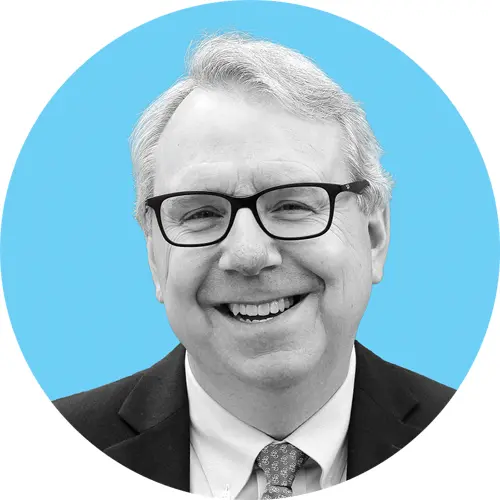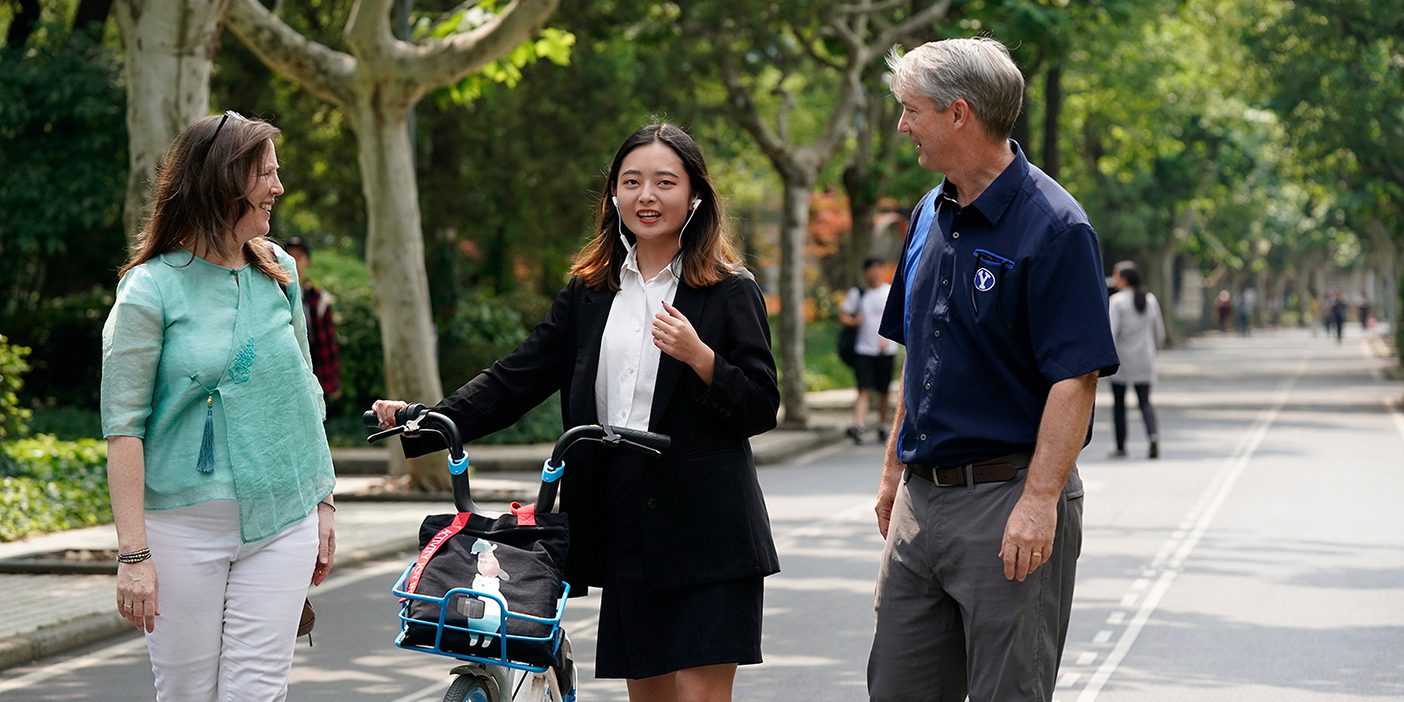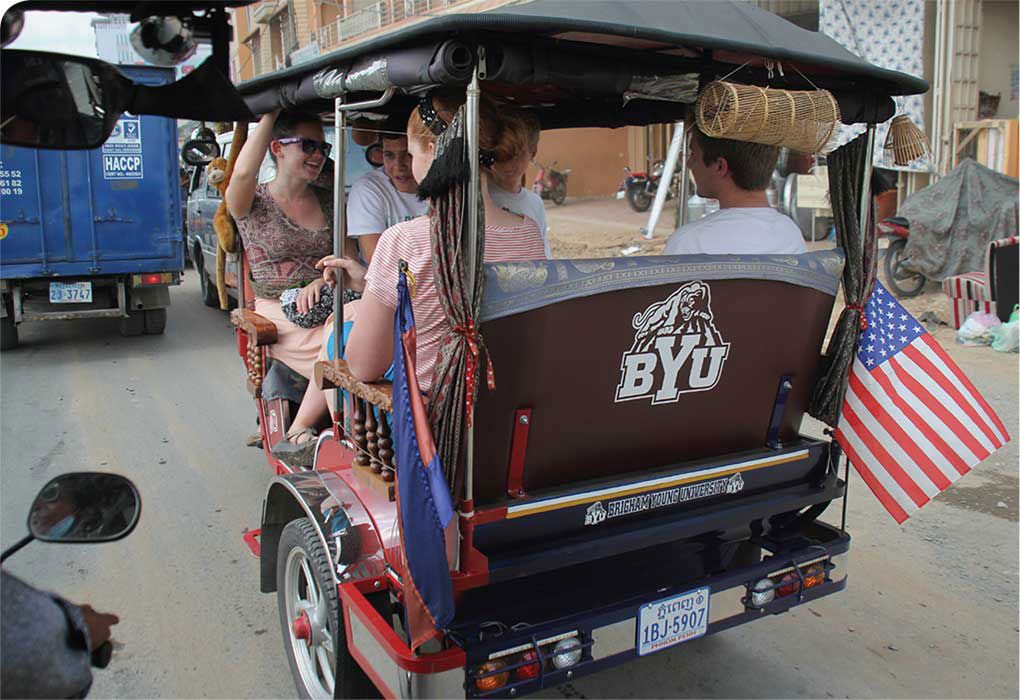BYU students are enriching their learning and deepening their faith all over the world.

In the winter and spring of 1984, I had the unexpected opportunity of taking part in the BYU study-abroad program in London. With Kennedy Center director Ray Hillam as the program director and future BYU academic vice president Todd A. Britsch (BA ’62) as associate director, I enjoyed the most intense and rewarding educational experience of my life. I gained increased understanding of European art, literature, history, and politics, and I found my testimony enriched as the faculty taught these subjects “bathed in the light and color of the restored gospel.”1 That experience was transformational for me; it sparked a determination to pursue an academic career following the examples of Professors Hillam and Britsch.
Now, as I write this 40 years later, I find myself again in London, this time as the director of BYU’s Kennedy Center, where I oversee the International Study Programs office. At the London Centre, I chatted with students about their experiences, including attending church in this increasingly international city. These students attend wards with members from dozens of different countries and see how the gospel blesses people from widely divergent backgrounds. Perspective-broadening experiences like these are increasingly common in this remarkable time for study abroad at BYU. Under the inspired leadership of Presidents Kevin J Worthen (BA ’79, JD ’92) and C. Shane Reese (BS ’94, MS ’95), we have received a renewed charge to focus on the student experience and to provide students with opportunities for “inspiring learning.”
Much has changed with BYU study-abroad programs since I studied in London, when there were only a handful of programs and a few hundred student participants; in the fall of 2023, the International Institute of Education’s Open Doors Report listed BYU as the nation’s No. 1 university for students studying abroad. Last year we served some 2,300 students in nearly 200 programs. These programs come from every college, ranging from general-education programs in London and Paris to an engineering program providing service to Latin American communities, a life-sciences program researching ecosystems in the South Pacific, and nursing programs providing both an intense clinical experience for our students and service to local communities on multiple continents, to name just a few.
While much has changed, the principles underlying these programs have remained constant. First, our primary focus is on the student experience. We seek opportunities for learning and service that are not available on BYU’s Provo campus, rich as that experience is. For many of our students, study abroad is not an optional extra, but a transformative experience that enables them to approach their education in new ways. And we take seriously the admonition in Doctrine and Covenants 88 that we learn so that we become more fit to serve, that what we do is ultimately not for ourselves but “for the benefit of the world” (2 Ne. 26:24). And we remain committed to educating the whole student—mind and
spirit.
I anticipate that the time my young friends spend in London will be life-changing, as it was for me; they will leave with a better understanding of art, culture, and history, and they will also grasp more fully how God works to bless the lives of all of His children and how they can be a part of that work, better prepared to participate as members and leaders in an increasingly global Church.

Stan Benfell is director of the Kennedy Center for International Studies.
NOTE
- Spencer W. Kimball, “Education for Eternity,” BYU devotional address, Sept. 12, 1967.












